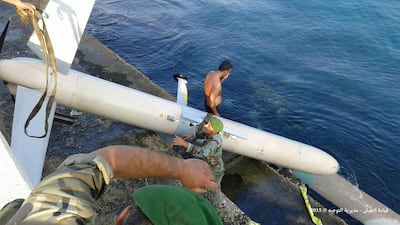BEIRUT // An Israeli drone crashed in the northern Lebanese port city of Tripoli on Saturday, the military said, in the second such incident in three weeks.
“At around 8.30am, a drone belonging to the Israeli enemy went down in the port of Tripoli, and the army has taken the necessary measures,” the Lebanese military said, without elaborating.
A security official said the pilotless aircraft crashed into the sea.
“Fishermen had the impression a plane was falling down towards their harbour, close to the main port of Tripoli,” said the source.
“They alerted the army which has retrieved the aircraft from eight metres under water. It turned out later that it was an Israeli drone.”
The Israeli military refused to comment on the reports.
On June 21, Israel carried out an airstrike in eastern Lebanon to destroy one of its drones that had crashed in the mountains outside the village of Saghbine.
Israel frequently sends drones and warplanes flying over Lebanon, mostly over towns and villages in the country’s south where the Lebanese militant group Hizbollah is known to operate. The city of Tripoli is unusually far north but Israeli drones are known to fly over the entire country.
Lebanon and Israel are bitter enemies who remain technically in a state of war. Israel and Hizbollah fought a month-long war in 2006 that killed 1,200 Lebanese, including hundreds of civilians, and 160 Israelis and caused heavy damage to Lebanon’s infrastructure.
* Agence France-Presse and Associated Press

